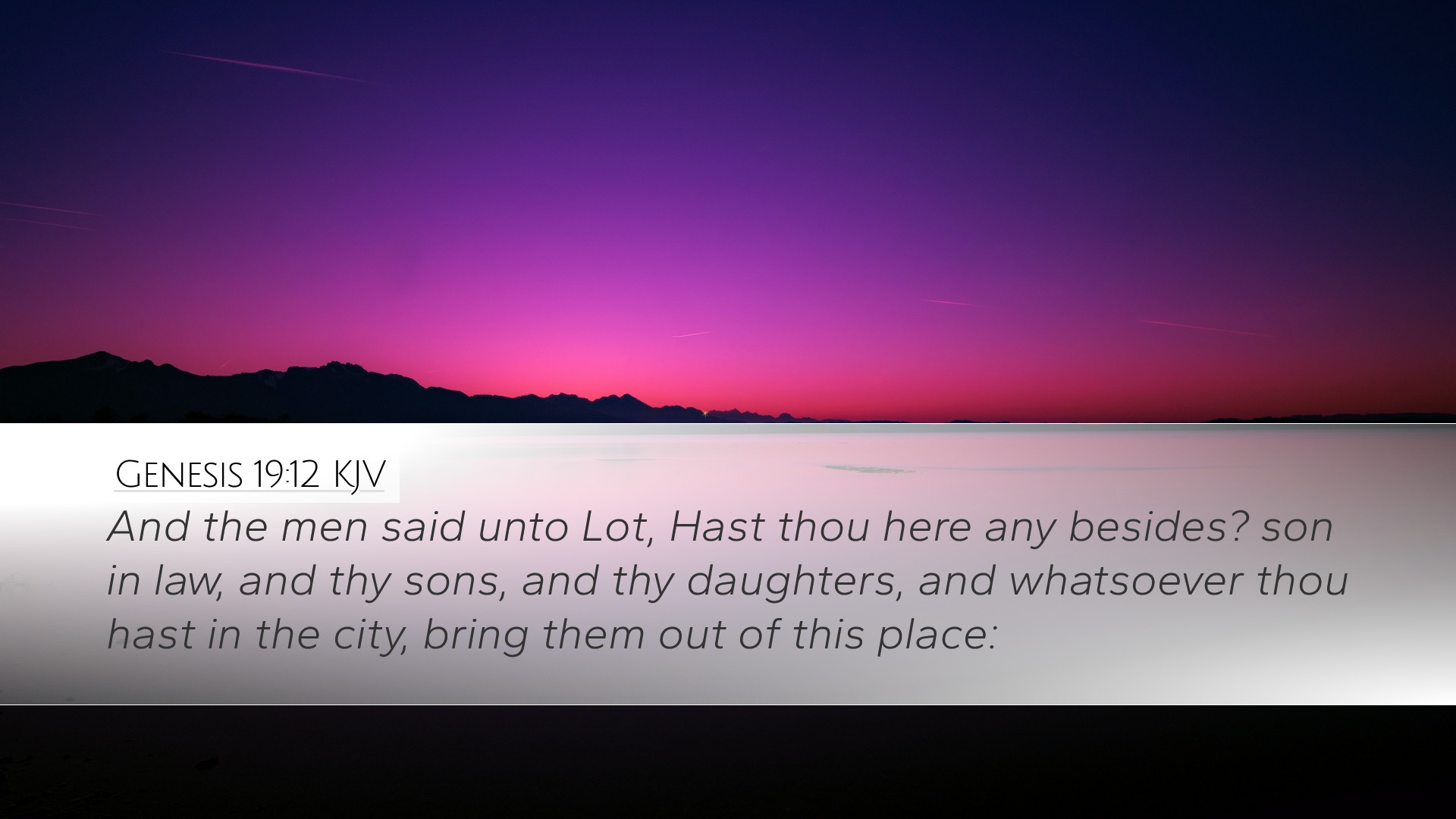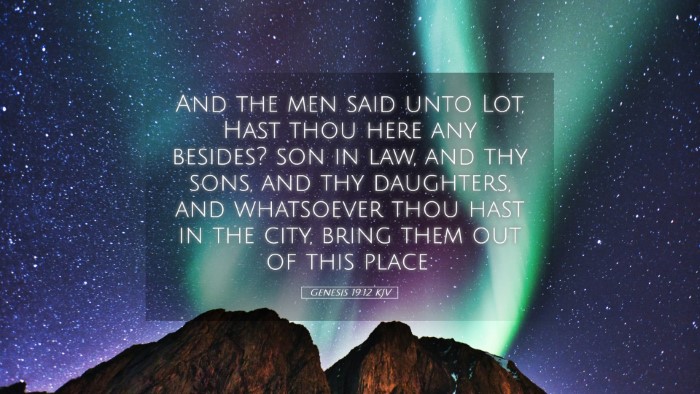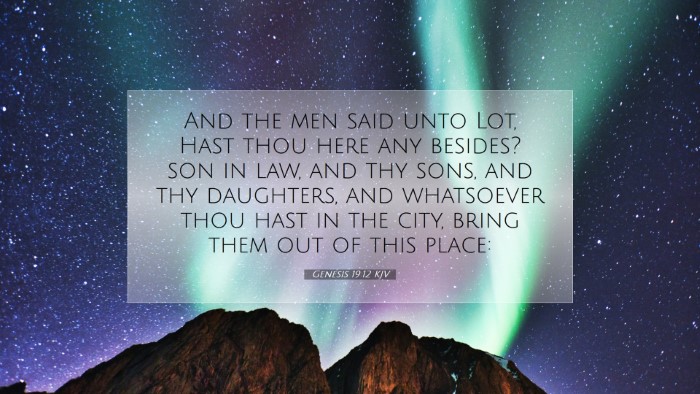Genesis 19:12 - Commentary Summary
Verse Context: Genesis 19:12 presents a pivotal moment in the account of Sodom and Gomorrah, where Lot is confronted by the angels who have come to rescue him and his family from impending destruction. This verse sets the stage for understanding the nature of divine judgment and human response to God's intervention.
Theological Significance
According to Matthew Henry, this verse encapsulates the urgency of divine warnings and the necessity of human response. It elucidates how God, in His mercy, often sends warnings through His messengers before executing judgment, highlighting the dichotomy of God's justice and mercy.
Albert Barnes emphasizes that the angels’ inquiry into Lot’s connections serves as a reflection of the moral decadence surrounding Lot. It raises important questions about the influence of one's environment on faith and morality, demonstrating that even the righteous can be affected by the surrounding corruption.
Adam Clarke points out the importance of considering the societal implications of the decisions made by Lot in response to the angels' message. The urgency depicted in the angels' warning illustrates the need for immediate action in the face of impending judgment.
Exegesis of Genesis 19:12
The phrase "hast thou here any besides?" poses a rhetorical question that underscores Lot's isolation in a morally bankrupt society. Henry interprets this as God’s invitation for Lot to seek deliverance not only for himself but for others, showcasing the missional aspect of divine intervention.
Barnes notes the angels’ inquiry as indicative of divine concern for the righteous amid the wickedness. Lot's relatives, though seemingly in danger of destruction, could still be saved through Lot's effective intercession if he acted quickly.
Clarke further elaborates that the distinction made by the angels draws attention to the broader theme of remnant theology within Scripture, where God preserves a people for Himself amidst widespread judgment.
Application for Pastoral Ministry
-
Urgency of Warnings:
This verse serves as a reminder for pastors to convey the urgency of the gospel message. Just as the angels urged Lot, modern preachers must stress the immediacy of salvation available through Christ.
-
Influence of Community:
Pastors should help congregants understand the importance of choosing their companions wisely, as Lot's surroundings significantly impacted his spiritual walk. Engage your congregation about moral choices and their consequences.
-
Intercessory Prayer:
Encourage prayer for those outside the faith. Like Lot, believers are called to intercede for others before potential judgment befalls them.
Hermeneutical Insights
The interplay between divine judgment and human action is rich for theological reflection. Henry’s commentary prompts readers to consider how present moral decline reflects the conditions of Sodom and Gomorrah, thus calling for vigilant discernment in current societal issues.
Barnes' insights lead us to reflect on collective salvation—the idea that one righteous individual can influence the fate of others. This principle invites a broader discussion on the church’s role in society today.
Clarke’s commentary invites scholars to delve into the cultural dynamics of Sodom, examining how societal pressures can cloud moral judgment and impact the lives of believers caught in moral quandaries.
Conclusion
Genesis 19:12 serves not only as a narrative device within the story of Sodom but also as a profound invitation to reflect on the urgency of our responses to divine warnings. Through the insights of Henry, Barnes, and Clarke, we gain a comprehensive understanding that challenges us to live righteously, intercede fervently for others, and remain vigilant in a world that often mirrors the cesspool of Sodom.


